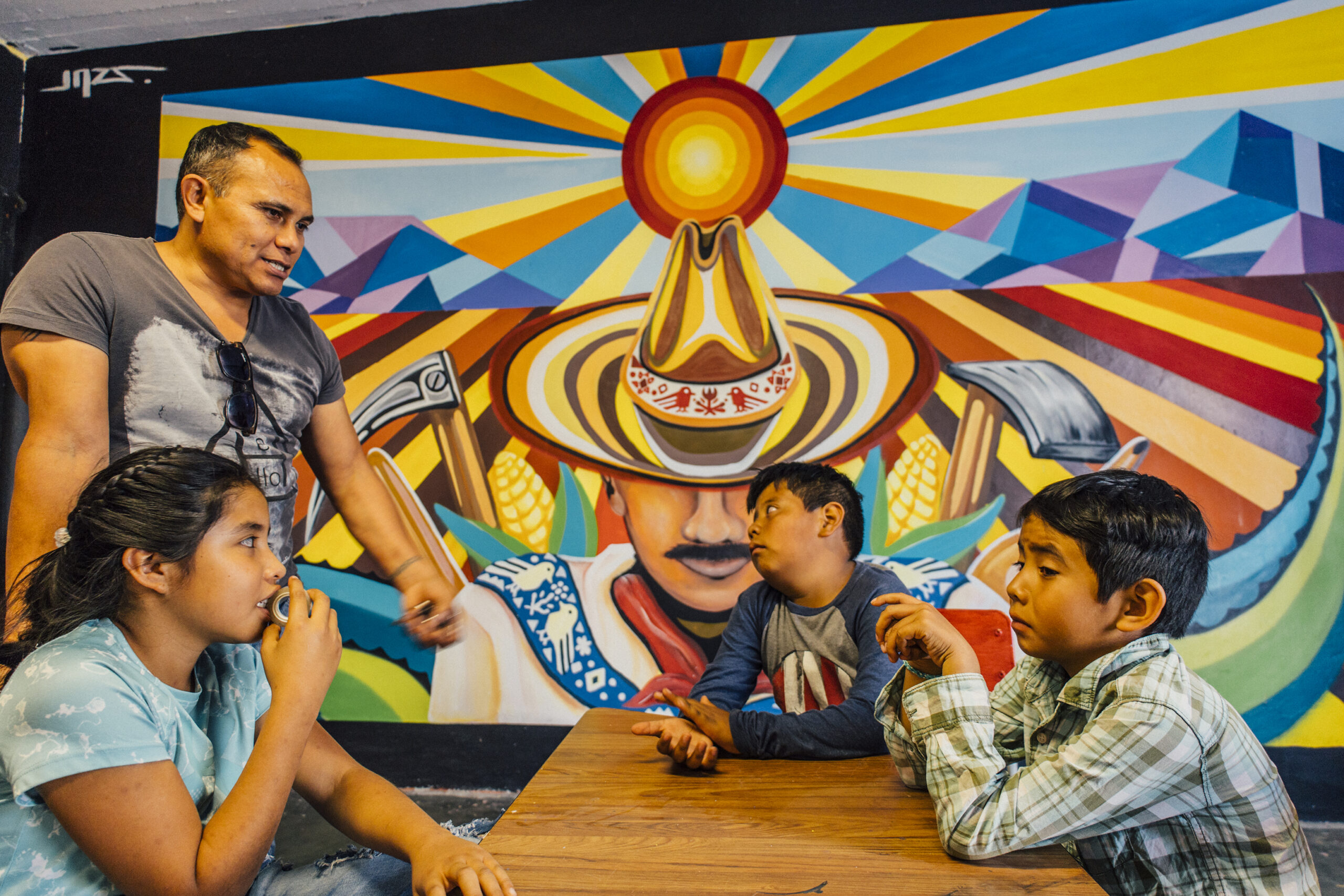THE HOPEFUL WORK OF TEACHING
This editorial by Mario Patron appeared in the May 15th, 2025 edition of La Jornada, Mexico’s premier leftist daily newspaper.
Today, May 15, Mexico commemorates a professional community whose work is key to building the foundations upon which the development of every society is rooted. [Day of the Teacher – ed] Day after day, teachers prefigure the societies of the future, not only through the transmission of knowledge, but also as bridges connecting students with the reality of their contexts, through their contribution to the formation of civic values, as well as through the consolidation of an ethos of fraternal, peaceful, and respectful coexistence, which is built through classroom coexistence and through the testimony of a life dedicated to serving others.
Today, education is going through a difficult time in which the hegemony of market rationality has sought to instrumentalize it as a mere technical tool to satisfy the needs of the apparatus of production and circulation of goods.
In the context of a reality characterized by uncertainty, crisis, and political and economic fragility, teaching remains a beacon of hope for overcoming the current conditions of violence, inequality, and socio-environmental imbalance. The commitment to teaching new generations at a time when the ecosystem of knowledge construction and dissemination is undergoing a profound reconfiguration, making the task of teaching perhaps more challenging than ever, is an act of profound courage that our societies are called to recognize as one of their greatest assets and as good news.
A good educator does not usually preach in the abstract; immediate reality is often the best starting point for constructing relevant knowledge that is meaningful and capable of being appropriated by the person being educated. This connection with reality is what allows education to be a great enabler for the development of attitudes, skills, and tools that strengthen the capacities of new generations to face the problems they must face. Therefore, education is recognized as a basic right, which is in turn a key right that can enable the enjoyment of many other social rights; it is, therefore, a condition for the realization of equality, justice, and dignity as a lived reality.
Today, however, education is going through a difficult time in which the hegemony of market rationality has sought to instrumentalize it as a mere technical tool to satisfy the needs of the apparatus of production and circulation of goods. As a result of this conception of education, educators have seen the moral and social recognition they until recently enjoyed as key social actors diminished. Added to this is the rapid pace with which technological and digital tools have facilitated access to information, which has de-monopolized the socialization and authorization of knowledge in educational institutions, but has also weakened the basic conditions for the rigor and reliability of circulating knowledge.
Faced with this reality, it’s increasingly common to hear that technology and artificial intelligence will gradually replace the profession of teaching. This could only be true from a misunderstanding of the teaching profession and a lack of awareness of the integral nature of teaching. Digital media and artificial intelligence facilitate access to information and, at their best, are a great tool for transmitting knowledge, but teaching cannot be reduced to a mechanical intellectual exercise.
Every educational process always requires an intermediary and a companion so that the content can be learned through example and a specific context, thus enabling a better understanding of reality and greater autonomy for the student to navigate their environment as transformative agents. Thus, the teacher mediates between abstract knowledge and its practical application in a given context, but is also responsible for nurturing the germination of the seed of critical thinking in students, which allows them to question the veracity, relevance, and validity of the ideas conveyed.
Without the vital role of teachers, education would become an alienating instrument. Critical thinking and meaningful learning that emerge from the educational experience are crucial for developing people capable of addressing the challenges of their environment and, therefore, becoming bearers of hope.

It is true that today, teaching faces unprecedented challenges due to the trends of new generations immersed in the immediacy fueled by the digitalization of life, with growing socio-emotional needs due to the loss of future horizons and the dilution of the certainties promised by the hegemonic ideas of development, and with a worrying academic backlog resulting from the pandemic. However, contrary to trends that suggest the obsolescence of education, it is in times of uncertainty that we most urgently need education that effectively trains citizens capable of transforming their context.
In any case, what the current crisis demonstrates is the obsolescence of a purely banking education that reproduces and deposits knowledge abstracted from context. Therefore, today, on the occasion of Teachers’ Day, it is necessary to recognize the work of so many who dedicate their lives to sowing hope in society through committed and liberating education; an education that trains critical individuals capable of influencing their environment; an education that builds learning communities and fraternal networks among new generations; and a hopeful education that bears witness to the possibility of experiencing justice, equality, inclusion, and peace firsthand and in the plural.

